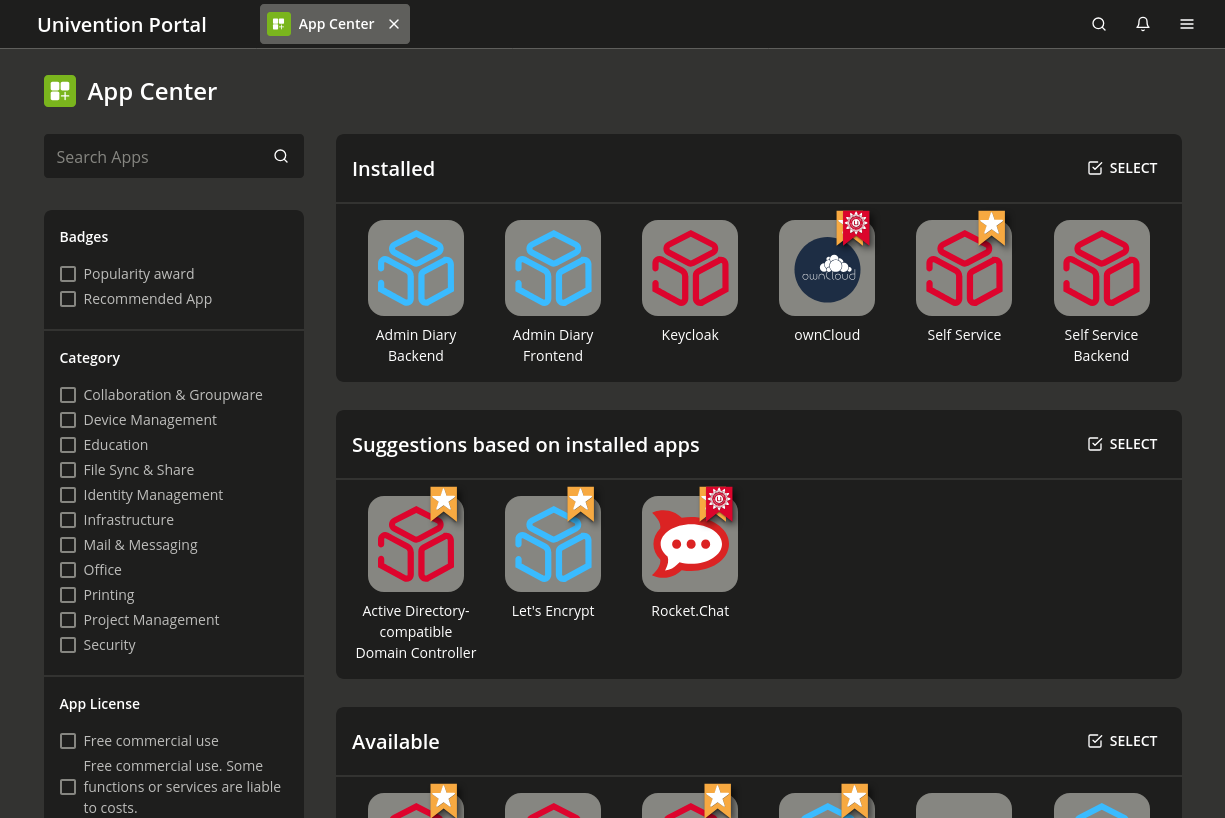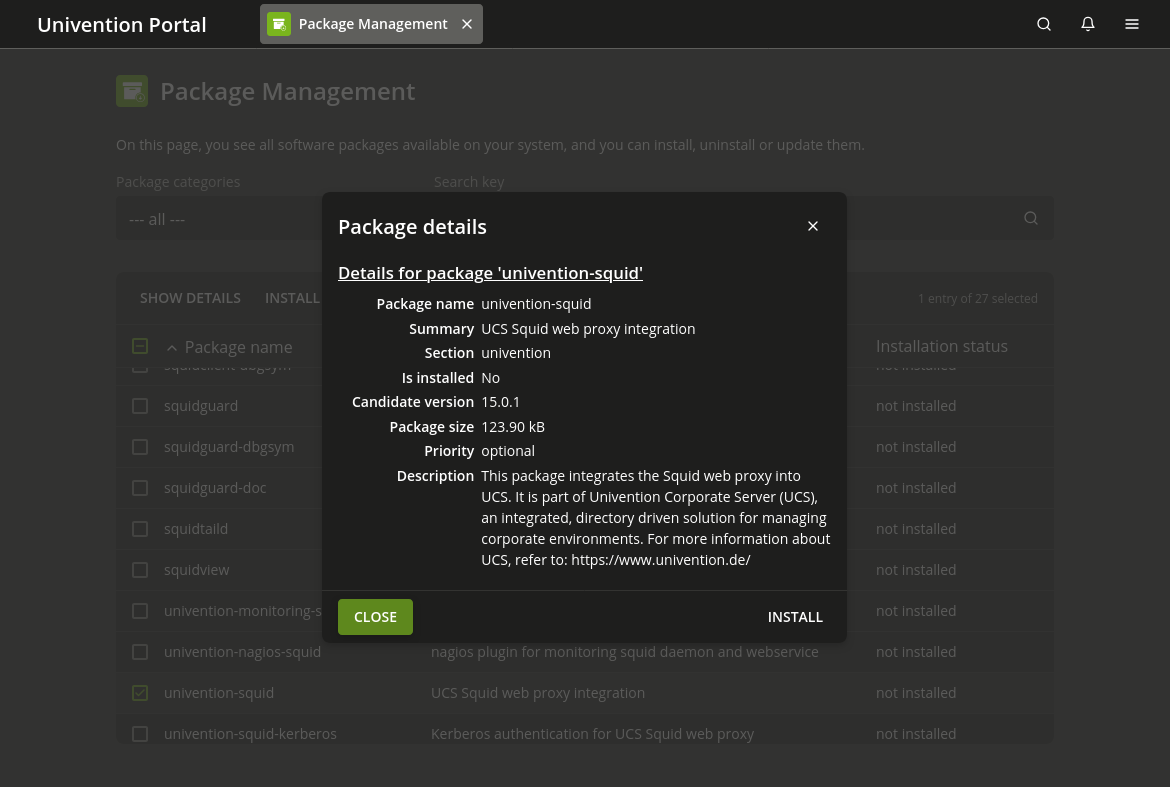5.5. Installation of further software#
The initial selection of the software components of a UCS system is performed within the scope of the installation. The software components are selected relative to the functions, whereby e.g. the Proxy server component is selected, which then procures the actual software packages via a meta package. The administrator does not need to know the actual package names. However, individual packages can also be specifically installed and removed for further tasks. When installing a package, it is sometimes necessary to install additional packages, which are required for the proper functioning of the package. These are called package dependencies. All software components are loaded from a repository (see Configuration of the repository server for updates and package installations).
Software which is not available in the Debian package format should be installed
into the /opt/ or /usr/local/ directories. These directories are
not used for installing UCS packages, thus a clean separation between UCS
packages and other software is ensured.
There are several possibilities for installing further packages subsequently on an installed system, as the following sections describe.
5.5.1. Installation/deinstallation of UCS components in the Univention App Center#
All software components offered in the Univention Installer can also be installed and removed at a later point in time via the Univention App Center. This is done by selecting the UCS components package category. Further information on the Univention App Center can be found in Univention App Center.

Fig. 5.6 Selection of UCS components in the App Center#
5.5.2. Installation/removal of individual packages via Univention Management Console module#
The UMC module Package Management can be used to install and uninstall individual software packages.

Fig. 5.7 Installing the package univention-squid via Univention Management Console module ‘Package management’#
A search mask is displayed on the start page in which the user can select the package category or a search filter (name or description). The results are displayed in a table with the following columns:
Package name
Package description
Installation status
Clicking an entry in the result list opens a detailed information page with a comprehensive description of the package.
In addition, one or more buttons will be displayed. They have the following meanings:
- Install
is displayed if the software package is not installed yet.
- Uninstall
is displayed if the software package is installed.
- Upgrade
is displayed if the software package is installed but not updated.
- Close
can be used for returning to the previous search request.
5.5.3. Installation/removal of individual packages in the command line#
The following steps must be performed with root user rights.
Individual packages are installed using the command:
$ univention-install PACKAGENAME
Packages can be removed with the following command:
$ univention-remove PACKAGENAME
If the name of a package is unknown, the command apt-cache search can be used to search for the package. Parts of the name or words which appear in the description of the package are listed, for example:
$ apt-cache search fax
5.5.4. Hook scripts for administrators#
Custom scripts can be called after each app installation, -upgrade or -removal. Such scripts can be used to automate repeating administrative tasks.
To use this feature custom scripts can be placed in one of the directories listed below. If such a directory does not yet exist, it can be manually created:
/var/lib/univention-appcenter/apps/{appid}/local/hooks/post-install.d//var/lib/univention-appcenter/apps/{appid}/local/hooks/post-upgrade.d//var/lib/univention-appcenter/apps/{appid}/local/hooks/post-remove.d/
Where {appid} is the name of the app for which the scripts should be
executed.
Script file names are only allowed to consist of lower case letters and numbers
(^[a-z0-9]+$). Additionally scripts have to be marked as executable
(chmod +x [filename]), because they are internally called by
run-parts. As a consequence run-parts --test [directory]
can be used to verify if and which files would be executed. Further information
can be found in the manual with man run-parts.
The /var/log/univention/appcenter.log contains
possible scripting error messages and further hints.
5.5.5. Policy-based installation/deinstallation of individual packages via package lists#
Package lists can be used to install and remove software using policies. This allows central software deployment for a large number of computer systems.
Each system role has its own package policy type.
Package policies are managed in the UMC module Policies with the Policy: Packages + system role.
Attribute |
Description |
|---|---|
Name |
An unambiguous name for this package list, e.g., mail server. |
Package installation list |
A list of packages to be installed. |
Package removal list |
A list of packages to be removed. |
The software packages defined in a package list are installed/uninstalled at the time defined in the Maintenance policy (for the configuration see Specification of an update point using the package maintenance policy).
The software assignable in the package policies are also registered in the LDAP.